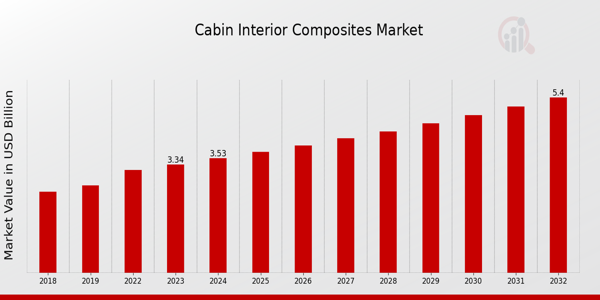Judge Rules Training AI on Authors' Books Is Legal But Pirating Them Is Not
-
This post did not contain any content.
-
This post did not contain any content.
Judges: not learning a goddamned thing about computers in 40 years.
-
This post did not contain any content.
And this is how you know that the American legal system should not be trusted.
Mind you I am not saying this an easy case, it's not. But the framing that piracy is wrong but ML training for profit is not wrong is clearly based on oligarch interests and demands.
-
And this is how you know that the American legal system should not be trusted.
Mind you I am not saying this an easy case, it's not. But the framing that piracy is wrong but ML training for profit is not wrong is clearly based on oligarch interests and demands.
This is an easy case. Using published works to train AI without paying for the right to do so is piracy. The judge making this determination is an idiot.
-
This is an easy case. Using published works to train AI without paying for the right to do so is piracy. The judge making this determination is an idiot.
You're right. When you're doing it for commercial gain, it's not fair use anymore. It's really not that complicated.
-
This post did not contain any content.
I think this means we can make a torrent client with a built in function that uses 0.1% of 1 CPU core to train an ML model on anything you download. You can download anything legally with it then.

-
I think this means we can make a torrent client with a built in function that uses 0.1% of 1 CPU core to train an ML model on anything you download. You can download anything legally with it then.

And thus the singularity was born.
-
And this is how you know that the American legal system should not be trusted.
Mind you I am not saying this an easy case, it's not. But the framing that piracy is wrong but ML training for profit is not wrong is clearly based on oligarch interests and demands.
The order seems to say that the trained LLM and the commercial Claude product are not linked, which supports the decision. But I'm not sure how he came to that conclusion. I'm going to have to read the full order when I have time.
This might be appealed, but I doubt it'll be taken up by SCOTUS until there are conflicting federal court rulings.
-
This post did not contain any content.
FTA:
Anthropic warned against “[t]he prospect of ruinous statutory damages—$150,000 times 5 million books”: that would mean $750 billion.
So part of their argument is actually that they stole so much that it would be impossible for them/anyone to pay restitution, therefore we should just let them off the hook.
-
This post did not contain any content.
That almost sounds right, doesn't it? If you want 5 million books, you can't just steal/pirate them, you need to buy 5 million copies. I'm glad the court ruled that way.
I feel that's a good start. Now we need some more clear regulation on what fair use is and what transformative work is and what isn't. And how that relates to AI. I believe as it's quite a disruptive and profitable business, we should maybe make those companies pay some extra. Not just what I pay for a book. But the first part, that "stealing" can't be "fair" is settled now.
-
FTA:
Anthropic warned against “[t]he prospect of ruinous statutory damages—$150,000 times 5 million books”: that would mean $750 billion.
So part of their argument is actually that they stole so much that it would be impossible for them/anyone to pay restitution, therefore we should just let them off the hook.
Funny how that kind of thing only works for rich people
-
This post did not contain any content.
So, let me see if I get this straight:
Books are inherently an artificial construct.
If I read the books I train the A(rtificially trained)Intelligence in my skull.
Therefore the concept of me getting them through "piracy" is null and void... -
FTA:
Anthropic warned against “[t]he prospect of ruinous statutory damages—$150,000 times 5 million books”: that would mean $750 billion.
So part of their argument is actually that they stole so much that it would be impossible for them/anyone to pay restitution, therefore we should just let them off the hook.
Ah the old “owe $100 and the bank owns you; owe $100,000,000 and you own the bank” defense.
-
The order seems to say that the trained LLM and the commercial Claude product are not linked, which supports the decision. But I'm not sure how he came to that conclusion. I'm going to have to read the full order when I have time.
This might be appealed, but I doubt it'll be taken up by SCOTUS until there are conflicting federal court rulings.
If you are struggling for time, just put the opinion into chat GPT and ask for a summary. it will save you tonnes of time.
-
This post did not contain any content.
Can I not just ask the trained AI to spit out the text of the book, verbatim?
-
You're right. When you're doing it for commercial gain, it's not fair use anymore. It's really not that complicated.
If you're using the minimum amount, in a transformative way that doesn't compete with the original copyrighted source, then it's still fair use even if it's commercial. (This is not saying that's what LLM are doing)
-
This post did not contain any content.
“I torrented all this music and movies to train my local ai models”
-
That almost sounds right, doesn't it? If you want 5 million books, you can't just steal/pirate them, you need to buy 5 million copies. I'm glad the court ruled that way.
I feel that's a good start. Now we need some more clear regulation on what fair use is and what transformative work is and what isn't. And how that relates to AI. I believe as it's quite a disruptive and profitable business, we should maybe make those companies pay some extra. Not just what I pay for a book. But the first part, that "stealing" can't be "fair" is settled now.
If you want 5 million books, you can't just steal/pirate them, you need to buy 5 million copies. I'm glad the court ruled that way.
If you want 5 million books to train your AI to make you money, you can just steal them and reap benefits of other’s work. No need to buy 5 million copies!
/s
Jesus, dude. And for the record, I’m not suggesting people steal things. I am saying that companies shouldn’t get away with shittiness just because.
-
This post did not contain any content.
This was a preliminary judgment, he didn't actually rule on the piracy part. That part he deferred to an actual full trial.
The part about training being a copyright violation, though, he ruled against.
-
And this is how you know that the American legal system should not be trusted.
Mind you I am not saying this an easy case, it's not. But the framing that piracy is wrong but ML training for profit is not wrong is clearly based on oligarch interests and demands.
You should read the ruling in more detail, the judge explains the reasoning behind why he found the way that he did. For example:
Authors argue that using works to train Claude’s underlying LLMs was like using works to train any person to read and write, so Authors should be able to exclude Anthropic from this use (Opp. 16). But Authors cannot rightly exclude anyone from using their works for training or learning as such. Everyone reads texts, too, then writes new texts. They may need to pay for getting their hands on a text in the first instance. But to make anyone pay specifically for the use of a book each time they read it, each time they recall it from memory, each time they later draw upon it when writing new things in new ways would be unthinkable.
This isn't "oligarch interests and demands," this is affirming a right to learn and that copyright doesn't allow its holder to prohibit people from analyzing the things that they read.






